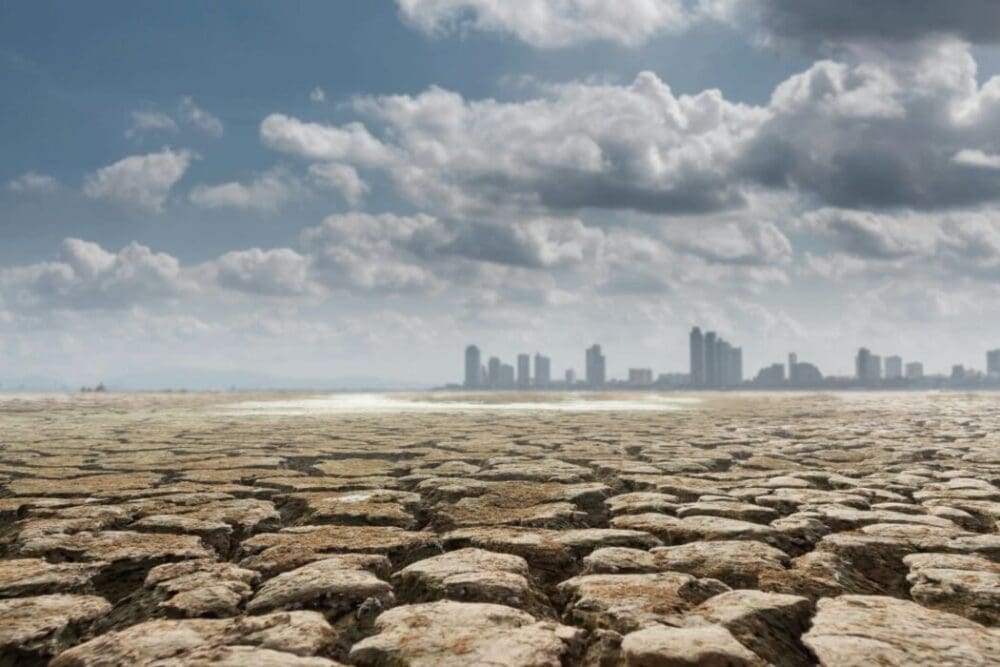A new report led by scientists from Oregon State University underscores the worsening state of the Earth’s climate, calling for immediate, comprehensive action as the annual UN climate summit approaches.
The 2024 State of the Climate Report, published today in BioScience, warns that Earth is entering a “critical and unpredictable new phase of the climate crisis,” and outlines key areas for urgent policy reform.
The report, directed by OSU’s William Ripple and Christopher Wolf, addresses five major areas for potential policy action: energy, pollutants, nature, food, and economy.
“A large portion of the very fabric of life on our planet is imperiled,” Ripple stated. He emphasized that current conditions are more threatening than anything experienced in human history, largely due to “ecological overshoot” – the exploitation of Earth’s resources beyond sustainable levels.
Among 35 planetary indicators to track climate change annually, 25 have reached record extremes. Ripple pointed out the three hottest days on record occurred in July 2024, as did fossil fuel emissions, which reached unprecedented levels, as did the global human population and livestock population.
Notably, the human population is growing by around 200,000 people daily, while ruminant livestock, like cattle, sheep, and goats, are increasing by 170,000 animals each day, contributing heavily to greenhouse gas emissions.
In 2023, fossil fuel consumption grew by 1.5%, with coal and oil use rising by 1.6% and 2.5%, respectively. Although renewable energy sources like solar and wind expanded by 15% compared to the previous year, they remain a fraction of total energy use – just one-fourteenth that of fossil fuels. This rise in renewables, the report states, primarily reflects increased energy demand rather than a shift away from fossil fuels.
Tree cover loss globally reached 28.3 million hectares in 2023, a sharp increase from 22.8 million hectares in 2022. The report notes that both carbon dioxide and methane concentrations are at all-time highs, with methane levels, in particular, rising at an accelerating rate.
“The growth rate of methane emissions has been accelerating, which is extremely troubling,” Wolf, now a scientist at Terrestrial Ecosystems Research Associates (TERA), added. Nitrous oxide levels have also reached record highs, further contributing to warming.
The report highlights other indicators of concern, including record global surface temperatures, ocean acidification, sea level rise, and shrinking ice masses in Greenland and Antarctica. Additionally, average glacier thickness is at its lowest ever recorded. Twenty-eight feedback loops exacerbating climate change have been identified, such as the thawing of permafrost, which releases trapped greenhouse gases.
Climate-related impacts are increasingly severe. In the United States alone, there were an estimated 2,325 heat-related deaths in 2023, marking a 117% rise since 1999. Ripple noted that recent climate events, such as deadly heatwaves in Asia, have already displaced millions of people, and further displacement is likely, with potential for geopolitical instability and even societal collapse.
To mitigate these escalating risks, the scientists recommend immediate adoption of several policies, including:
- Implementing a global carbon price to limit emissions from the wealthiest sectors while funding further climate action.
- Improving energy efficiency and promoting conservation to replace fossil fuels with low-carbon alternatives.
- Reducing emissions of short-lived pollutants, like methane.
- Protecting and restoring biodiverse ecosystems to enhance carbon storage and cycle stability.
- Promoting plant-based diets to reduce the environmental impact of livestock farming.
- Advocating for sustainable economic practices that discourage overconsumption and waste by affluent communities.
- Incorporating climate education into global curriculums to enhance awareness and foster action.
Despite mounting evidence, including reports from the Intergovernmental Panel on Climate Change (IPCC) and UN climate conferences, “the world has made very little headway on climate change,” Wolf noted. He warned that humanity’s future depends on “creativity, moral fiber, and perseverance” and urged leaders to act decisively.
The 2024 UN climate summit, scheduled for Nov. 11-22 in Baku, Azerbaijan, presents an opportunity for meaningful progress. “It’s imperative that huge progress is made,” Ripple concluded, urging leaders to respond to the growing climate emergency.
Journal Reference:
William J Ripple, Christopher Wolf, Jillian W Gregg, Johan Rockström, Michael E Mann, Naomi Oreskes, Timothy M Lenton, Stefan Rahmstorf, Thomas M Newsome, Chi Xu, Jens-Christian Svenning, Cássio Cardoso Pereira, Beverly E Law, Thomas W Crowther, ‘The 2024 state of the climate report: Perilous times on planet Earth’, BioScience, biae087 (2024). DOI: 10.1093/biosci/biae087
Article Source:
Press Release/Material by Oregon State University
Featured image credit: Kritsada Seekham | Pexels




